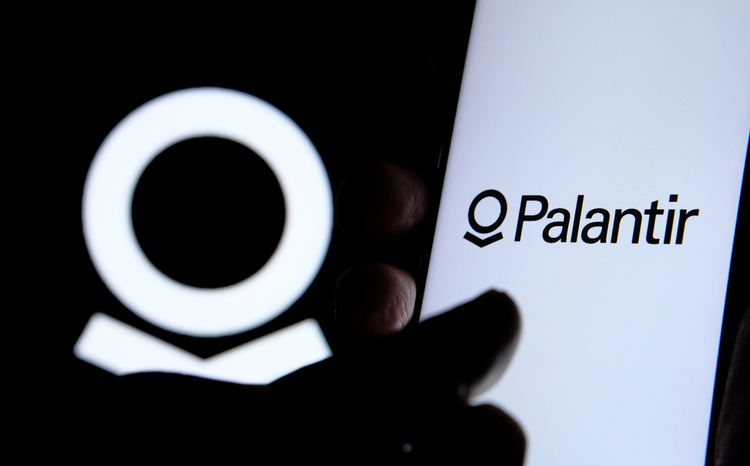Babylon goes public in the US – and secures investment from Palantir
- 8 June 2021

UK digital health provider Babylon has announced plans to become a public company following a $4.2bn (£2.9bn) merger.
The company has entered into a definitive merger agreement with special purpose acquisition company Alkuri Global. US big data company Palantir has also taken a strategic stake in Babylon.
Following the merger the combined company will operate as Babylon and will operate on Nasdaq under BBLN. It will give the healthtech company a pro forma equity value of $4.2bn (£2.9bn).
The merger is expected to be completed in the second half of 2021.
Ali Parsa, founder and chief executive of Babylon said: “We founded Babylon on a fundamental belief, that it is possible to make quality healthcare accessible and affordable for every person on earth by combining the latest in technology and the best in medical expertise.
“We have achieved one of the highest growth rates every year since our inception, with consistently high clinical outcomes and patient satisfaction. Becoming a public company is just another step in our journey.
“We are at the very beginning of our work to re-imagine our sector, to make it digital-first and prevention-first and shift the focus away from sick care to true health care.”
The merger is expected to deliver up to $575m (£406m) gross proceeds, including up to $345m (£244m) from Alkuri Global.
Several external investors, including Palantir, have helped fund a $230m (£162m) private placement – a sale of stock shares to investors and private institutions. It is worth $10 (£7) a share.
Rich Williams, Alkuri Global chief executive, added: “Babylon’s patient-first approach – coupled with its focus on accessibility and affordability – has made it one of the most exciting growth stories in health and technology.
“When we founded Alkuri, we set out to identify high-potential, disruptive companies with visionary founders and strong teams. Babylon is all of those things, and we’re excited to work with them on their truly world-changing mission.”
Babylon’s journey in the NHS
Babylon, which has been heavily backed by health secretary Matt Hancock, has not been without controversy since its launch in the UK. The company’s first NHS contract was with Hammersmith and Fulham Clinical Commissioning Group (CCG) for its GP at Hand app, which left the CCG with a funding deficit of at least £21m in 2019.
In June 2019 the company was given the green light to expand to Birmingham with initial restrictions on the number of patients they could register until concerns about access to local and national screening services were addressed.
In October the same year the company announced plans to expand to Manchester, but the proposal was initially objected to by Manchester CCG due to concerns over “safe and effective care”. At the time the CCG said it was “not convinced” Babylon’s services are sufficiently integrated with other local and national services.
Babylon’s rapid expansion across the UK was a catalyst for NHS England and Improvement to amend out-of-area patient registration rules to ensure digital providers would have their contracts disaggregated once they reach a threshold of 1,000.
The rule change meant Babylon, which was registered at Hammersmith and Fulham CCG despite the bulk of their patients living outside of the catchment area, would have to set up new alternative provider medical services (APMS), including physical premises in some areas.
The digital health company has also faced accusations of cherry picking patients, with an Ipsos Mori report concluding the provider “clearly limits” the type of patients that are likely to use the service. The evaluation was also “not able to fully address” whether the service is affordable or sustainable.
An investigation by the Guardian and the Bureau of Investigative Journalism (TBIJ) in 2019 revealed Dominic Cummings, who was Boris Johnson’s most senior aide at the time, had a potential conflict of interest with the digital health firm.
Cummings was reportedly advising Babylon on its communication’s strategy and senior recruitment. His role with the company ended in July 2018, but he continued to advise on recruitment grounds until September 2018 – the same month health secretary Matt Hancock visited Babylon and told them the NHS wanted to help the company expand.
Recently Babylon has signed major deals with The Royal Wolverhampton NHS Trust, University Hospitals Birmingham NHS Foundation Trust and Royal Berkshire NHS Foundation Trust.
Away from Babylon, major concerns about Palantir’s role in the NHS and it’s access to sensitive data have been raised during the Covid-19 pandemic. The US firm is one of a number of big tech companies working on the NHS Covid-19 Datastore, established to manage Covid-19 data to inform the government’s response to the virus.
Following the award of a £23m contract to Palantir, Foxglove Legal and openDemocracy brought a judicial review against the government over what they labelled a “secret” deal that required greater transparency. The government committed in March 2021 to not expand the firms contract without public consultation.





1 Comments
Has anyone watched this?
https://www.youtube.com/watch?v=5pyTBeeVo54&t=2s
AFAIAA it hasn’t been validated – & their website says that information given by the chatbot is based on risks & statistics.- not the individual.
(& no mention of malaria in the Rwanda version)
Comments are closed.